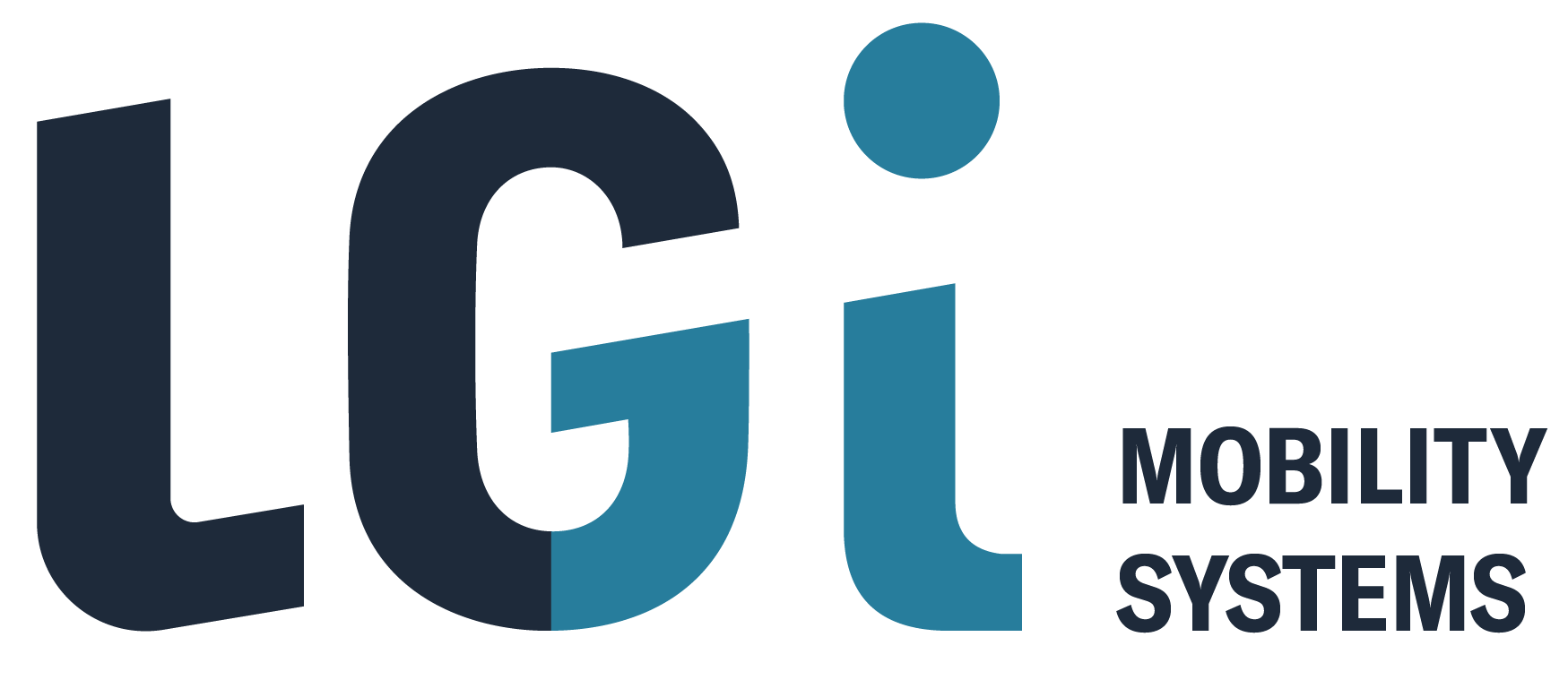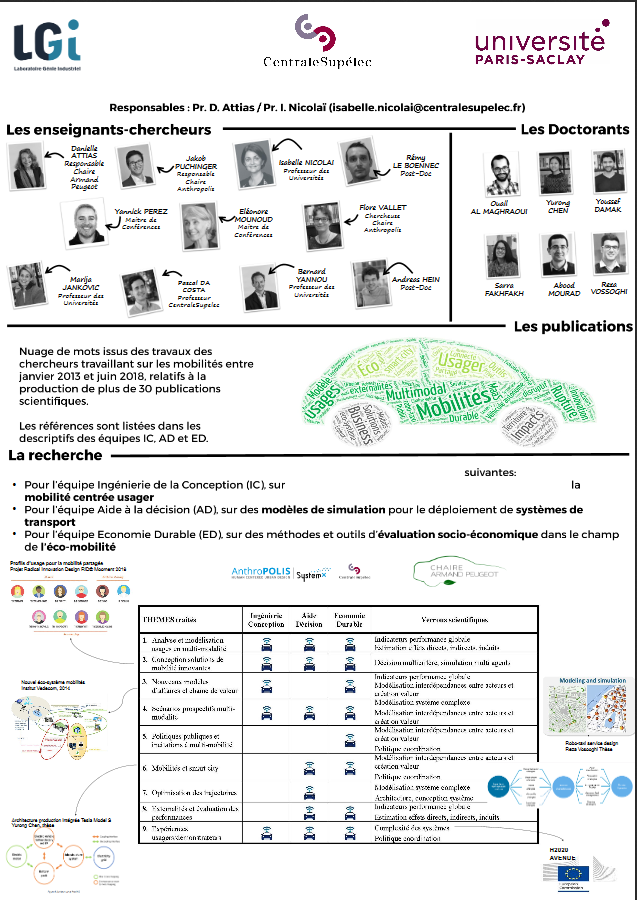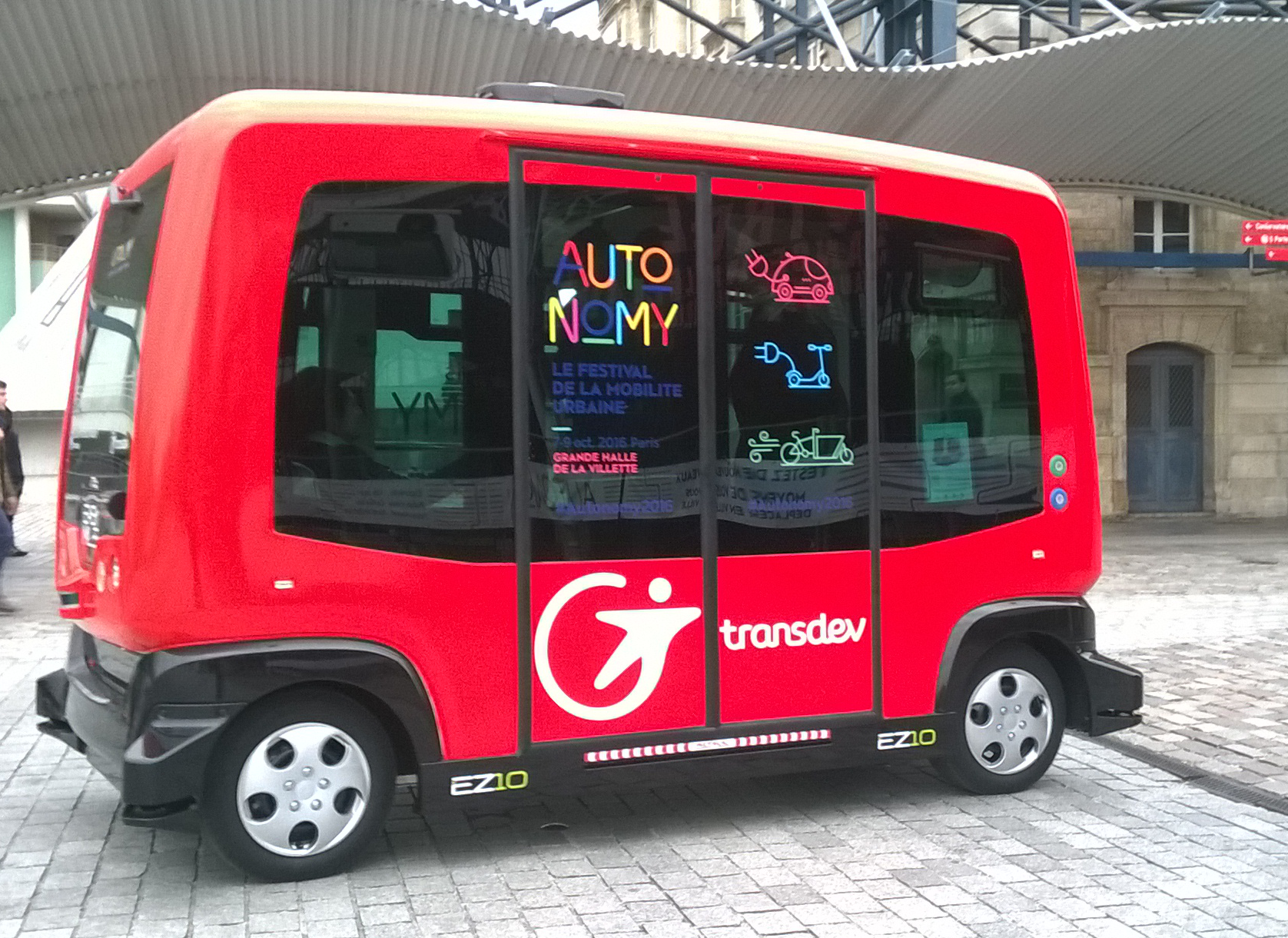MOBILITY SYSTEMS

New mobilities: What ecosystem for tomorrow ?
Eco-mobility involves all mobility solutions and encompasses every type of transport – individual and shared, public and private – that contributes to providing a positive response to sustainable development issues. This eco-mobility is also smart and connected.
These new mobilities need to be analyzed with a multi-disciplinary approach, fitting into a context of prospective and disruptive innovation. Research approaches include engineering, economics and social sciences, and employ tools to design and model socio-technical mobility systems.
|
|
|
AMBASSADORS
|
|
|
The models developed attempt to understand and satisfy stakeholders’ mobility requirements in a transition context. In more detail, the themes tackled by our research are the following:
- Sustainable urban mobility: we rethink the mobility concept (new usages, new services, multi-modal transport, scenarios, governance system) for the ecological, digital and social transition of the urban spaces or territories with the integration of the autonomous car.
- Electro-mobility economy: we study the link between the business models of new electrical vehicles and the smart grid, and also at the services economy of new mobilities.
KEYS WORDS
- Sustainable urban mobility,
- electro-mobility,
- business model innovation,
- MaaS, mobility eco-system,
- urban transport automation,
- environmental performance evaluation.
Our purpose is to strengthen collaboration links between LGI teams in order to offer a global and pertinent analysis of mobility systems.
The main results in 2020 which are significant for partnerships between LGI teams are the following :
- The axis currently gathers 17 PhD students and post-doc registered in all LGI teams and who collaborate together.
- Contribution to the organization of an international “Interdisciplinary Research Program on Urban Mobility” at the Institut Pascal (Université Paris Saclay).
- Projet H2020, AVENUE Autonomous Vehicles to Evolve to a New Urban Experience, programme «Full-scale demonstration of urban road transport automation».
- Adam Abdin, as a post-doc researcher joined in 2020 the Future Cities Lab. This innovative structure is a joint research initiative between Ecole Centrale Pekin in China and CentraleSupélec in France It’s objective is to address the challenges related to planning, ope- rating and managing increasingly complex future urban systems
- Launching of Mariana Reyes-Madrigal’s PhD thesis on «Mobility as a Service (MaaS), concepts, governance and business models» supervised by Isabelle Nicolaï (Sustainable Economy Team), Jakob Puchinger (Operation management Team and Anthropolis Chair Holder) and Virginie Boutueil (LVMT-ENPC).
- Launching of Tjark Gall’s PhD thesis on Future Mobility supervised by Bernard Yannou, Flore Vallet (Engineering design team), and Sylvie Douzou (EDF R&D)
- Launching of Robin Lecomte’s PhD thesis on «Impacts of scenarios of Autonomous vehicles» co-supervised by Bernard Yannou and Roland Cahen (ENSCI- Les ateliers, Centre de recherche en design)
- The Anthropolis Chair, jointly operated by Centrale-Supélec and IRT Systemx was renewed in 2019 with new stakeholders to pursue the comprehension of urban mobility and to build a vision of future mobility integrating the challenges of urban life. Partners: EDF, Engie, Nokia Bell Labs, Renault, Communauté d’agglomération Paris-Saclay.


